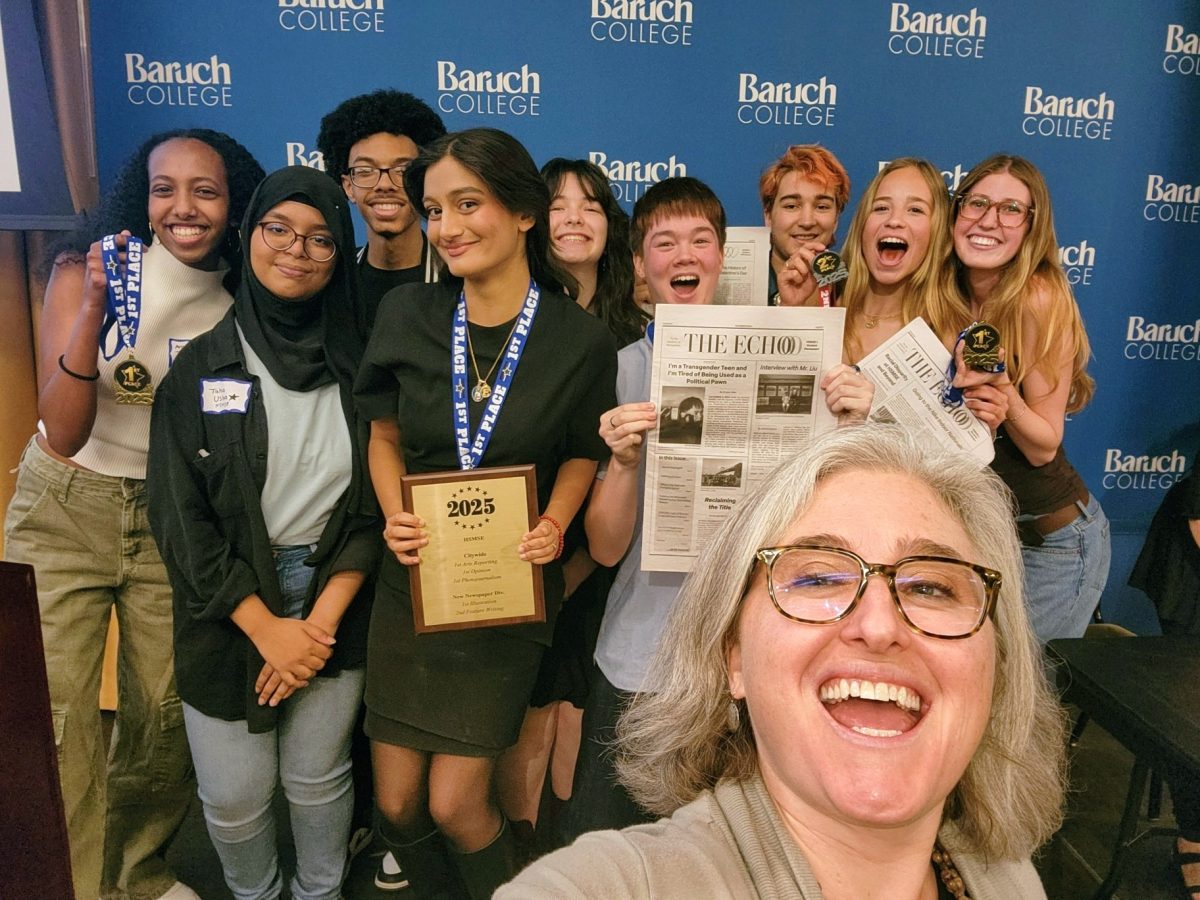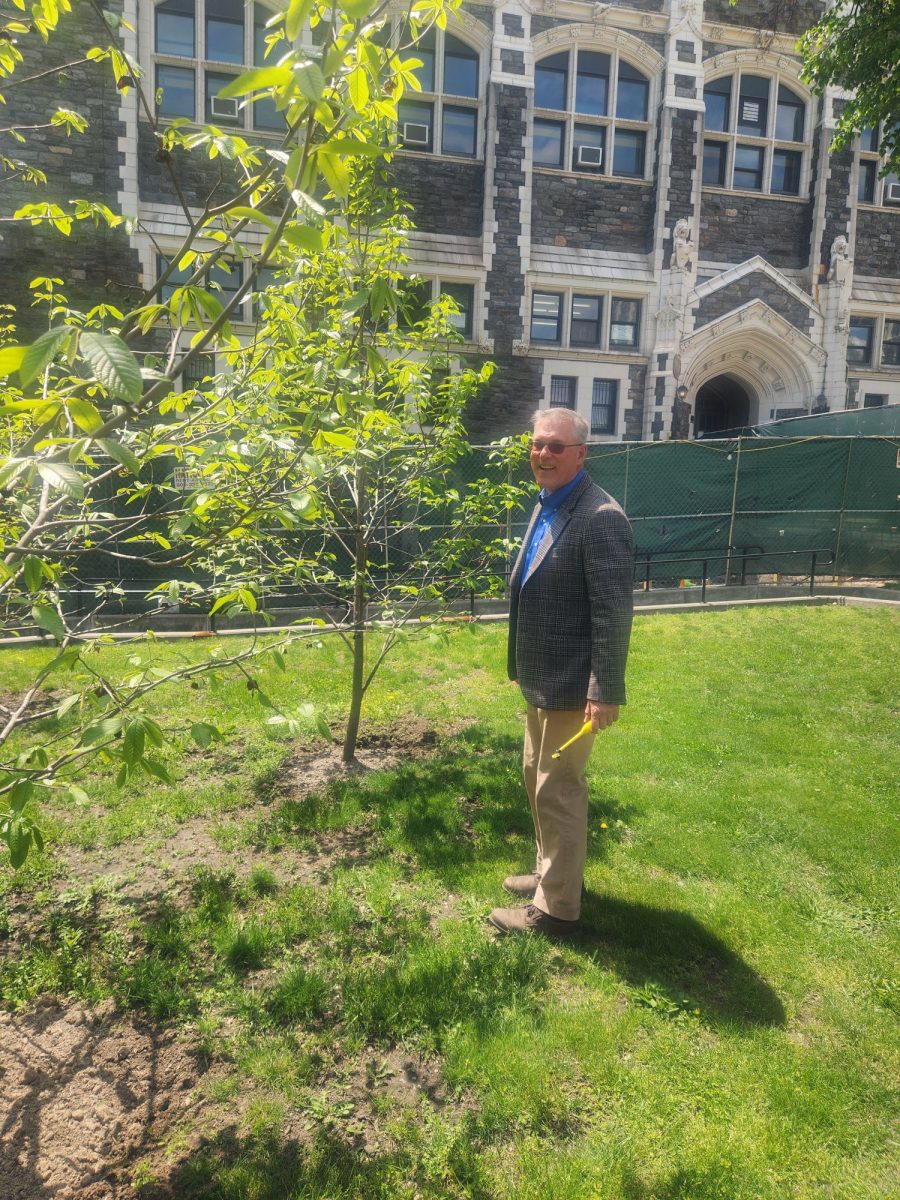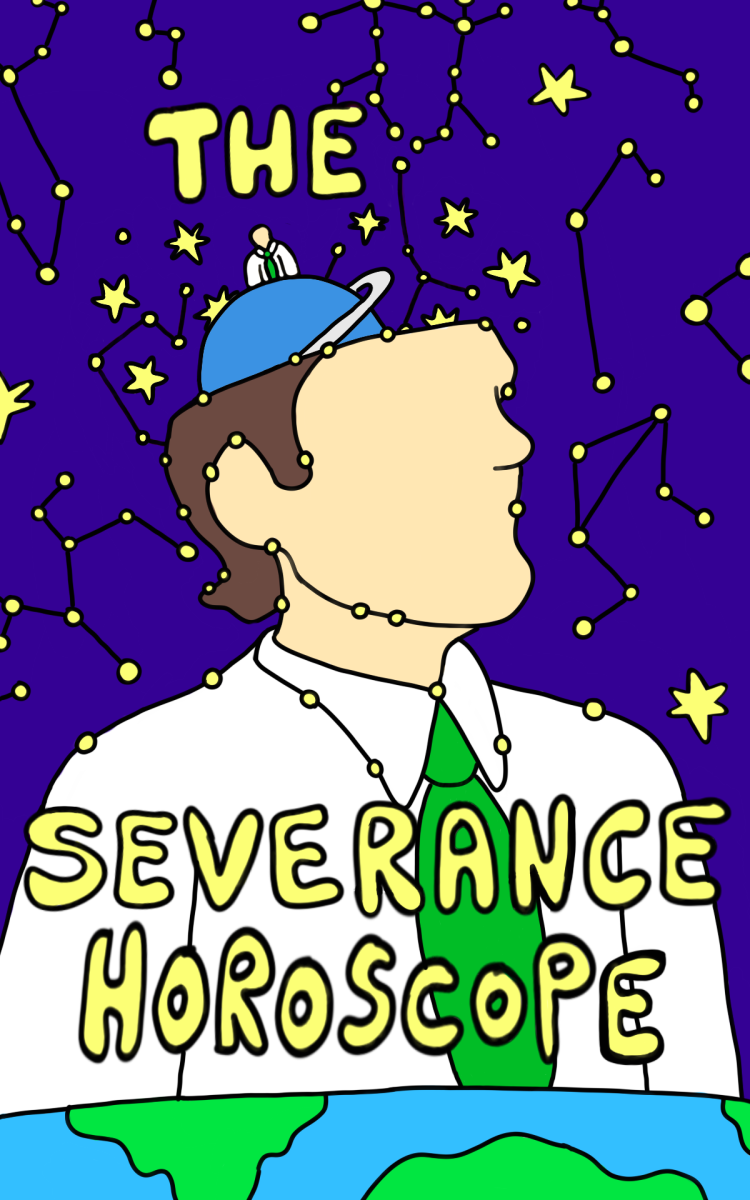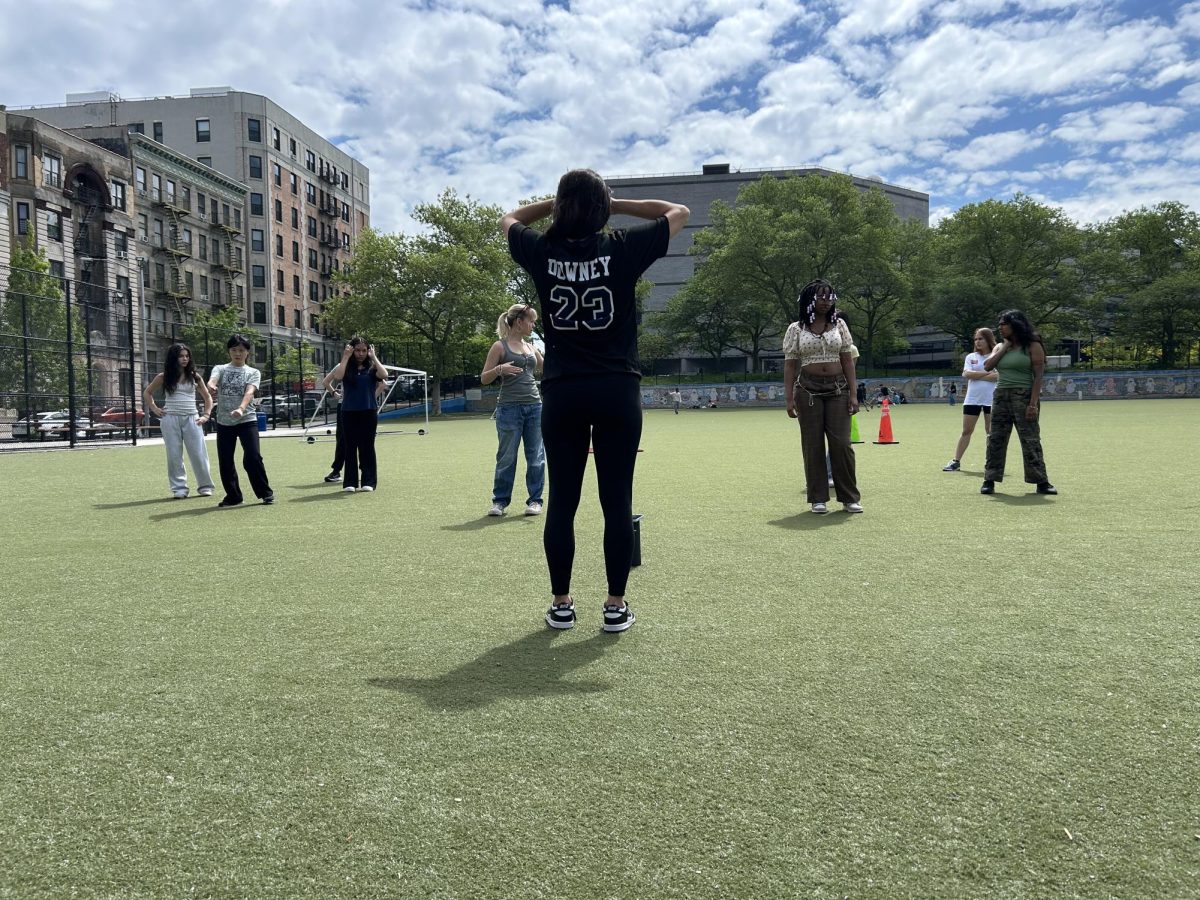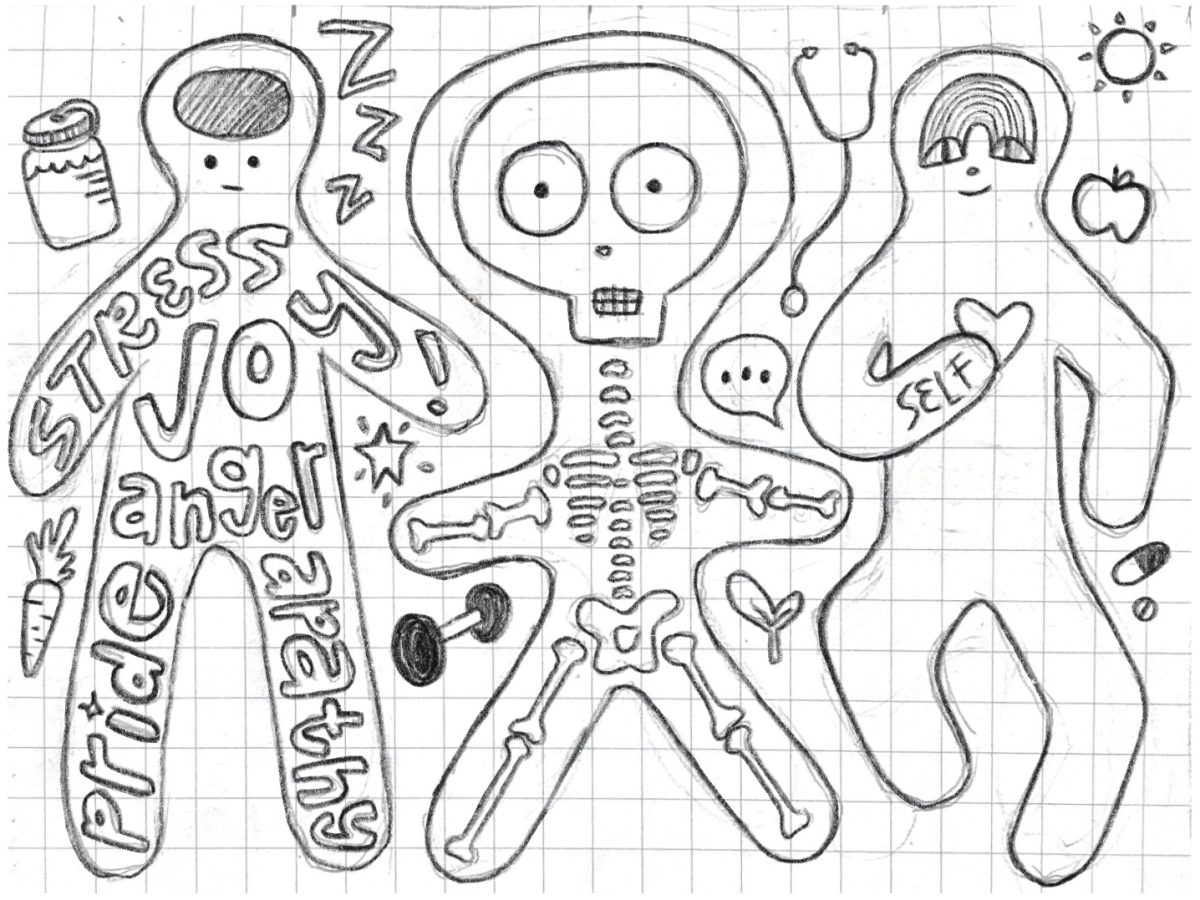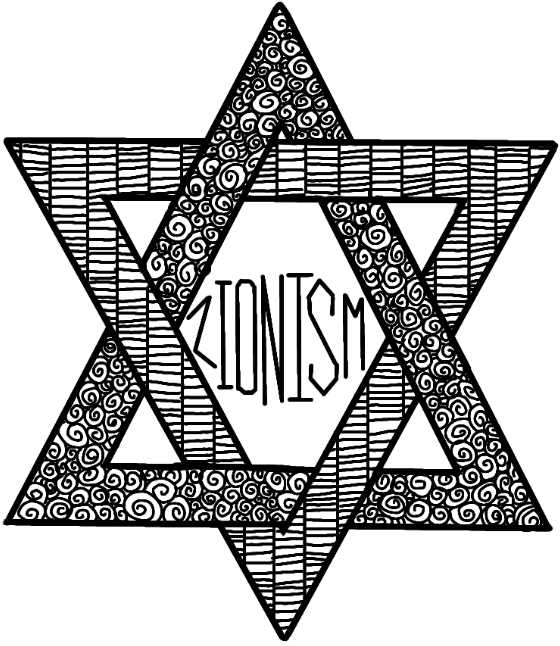Zionism has become an increasingly weaponized word in today’s political landscape. But what does it really mean? Is there even a singular definition? When asked how they define Zionism, HSMSE students were thoughtful in their responses.
Gareth Reis (‘26): “I would personally define Zionism as a desire to have a sovereign state for Jews, by Jews. For the most part, located where it is now, in the Holy land.”
Ocean Hiller (‘26): “To me, Zionism claims that Israel is a land without people for people without a land. I’m an anti-Zionist Jew and I believe that Jewish safety cannot come at the expense of Palestinian existence. Zionism is rooted in settler colonialism, not religious rights. None of us are free until all of us are free.”
Ava Starker (‘25): “Zionism is the right for a Jewish homeland to exist. Zionists don’t believe in annihilation or harm, they just want a state of sanctuary.”
Tahsina Islam (‘25): “It is the idea that people of Jewish descent should have their own country.”
As stated in the Torah, the ten Jewish tribes were initially exiled from the land of Israel in the year 732 BCE, following the Assyrian destruction of the First Temple, a pillar of the Jewish people built by King Solomon. For the next two thousand years, Israel faced Hellenistic, Roman, Byzantine, Arab, Crusader, and Ottoman rule. The first aliya (large-scale Jewish immigration) to Ottoman Israel took place from 1881 to 1903. Jews mainly immigrated from Eastern Europe due to pogrom (anti-Jewish rioting) attacks throughout the Russian Empire and other countries. The British conquest ended Ottoman rule in 1917, and Arthur Balfour, the British Foreign Minister and former Prime Minister of the United Kingdom, issued the Balfour Declaration in support of a “Jewish national home in Palestine.” In 1946, President Truman approved a recommendation to admit 100,000 displaced persons into Palestine. The state of Israel was officially established on May 14th, 1948, following the UN Resolution 181, which called for the partition of Palestine into Arab and Jewish states. The Partition Resolution was created in response to the increasing demand for a safe space for Jews, especially following the recent Holocaust. This separation of land sparked conflicts that remain increasingly prominent between the two countries due to differing opinions on the nature of the partition. Although criticized, the state of Israel remains an independent country today.
Throughout history, there have been multiple definitions of Zionism. The first Zionist Congress (1897), led by Theodore Herzl, embodied Political Zionism, calling for a “publicly recognized, legally secured” democratic, Jewish homeland in Palestine. This state intended to save Jewish lives, a response to rampant pogrom across Eastern Europe. Political Zionism continued with the ideas of Elie Wiesel, a Holocaust survivor and prominent author, who asked, “had Zionism and its demands not existed, what would have become of the survivors of the ghettos and the camps, the partisans emerging from the forests and mountains?”
Labor Zionists envisioned a Jewish working class settling in Palestine, working the land and constructing a progressive society. Labor Zionism supported kibbutzim, agricultural communities which still exist today in Israel. Nahman Syrkin, the Russian founder of Labor Zionism, relied on “basic principles of peace, co-operation, and cultural progress.” This definition was very utopian, hoping that an old-new Jewish state would “bring alive a realistic socialism.” Syrkin claimed that “For a Jewish state to come to be, it must, from the very beginning, avoid all the ills of modern life.”
Revisionist Zionism insisted on the Jewish people’s right to sovereignty over the biblical land of Israel. To achieve this goal, they supported rapid, large-scale immigration to Palestine. Advocates for Revisionist Zionism essentially embodied Hertzl’s Political Zionism, but with an increased sense of urgency, and a revised view on who the New Jew should be. Vladimir Ze’ev Jabotinsky, a steadfast revisionist Zionist, defined the New Jew as one “proud of a rich past but ready for current challenges.” He respected Arab nationalism, but would not apologize for his Jewish nationalism.
A strong observance of Judaism in the Jewish state is vital to Religious Zionism. Religious Zionist pioneer Abraham Isaac Kook stated that “Jewish original creativity, whether in the realm of ideas or in the arena of daily life and action, is impossible except in Eretz Yisra’el [the land of Israel].” Kook assumes a more spiritual stance, explaining that “What Eretz Yisra’el means to the Jew can be felt only through the Spirit of the Lord which is in our people as a whole, through the spiritual cast of the Jewish soul.”
Cultural Zionists desired a Jewish state as a spiritual center of Judaism, feeling that the Jewish people needed a renewal in Jewish culture, including in arts, literature, and education, as well as a revival of the Hebrew language. Perhaps the best-remembered advocate for the revival of the Hebrew language was Eliezer Ben-Yehuda, who wanted to change the fact that “The Jewish nation and its language died together.” Some Cultural Zionists prioritized this renaissance of language over the immediate creation of a Jewish state.
Diaspora Zionism expanded the definition of a Zionist to include any supporters of Jewish nationalism, meaning that an individual doesn’t need to be a pioneer in the land of Israel to be a Zionist. Former U.S. Supreme Court Justice Louis Dembitz Brandeis wrote that “there is no inconsistency between loyalty to America and loyalty to Jewry. The Jewish spirit, the product of our religion and experiences, is essentially modern and essentially American.” He called for the option of “a legally secured home, where [Jews] may live together and lead a Jewish life … expect ultimately to constitute a majority of the population, … [and look forward to] home rule.” As embodied by Brandeis, Diaspora Zionism demonstrated the focus of many American Jews on supporting the state of Israel.
So how do each of these historical definitions contribute to how Zionism is defined by Jews today? The Anti-Defamation League, an organization dedicated to fighting antisemitism, generally describes a Zionist as an advocate for an independent Jewish state. They believe that “The vast majority of Jews around the world feel a connection or kinship with Israel,” largely “in response to a long history of intense anti-Jewish hatred, persecution, and discrimination in countries and societies across the world.” On a broader note, President and CEO of the Steinhardt Foundation for Jewish Life Rabbi David Gedzelman sees Zionism as “The national liberation movement of the Jewish People.” These definitions, along with the broad range of student answers, reveal that it is up to each person to define Zionism for themself. Many of the students I asked to interview did not feel as though they were informed enough to define Zionism, which pushed me to realize the significance of bringing awareness of large scale debates into our STEM bubble. Whether or not one might agree is irrelevant; there is always value in hearing out opinions. To me, Zionism is crucial to the fight against constantly evident antisemitism. Jews deserve a sanctuary, rich with culture and community, a place to call home even if they don’t reside there. It’s important to remember that Zionism and its ideas don’t exactly pertain to a certain stance on the Israel-Palestine conflict, and don’t mean that one is in agreement with the policies of the Israeli government. The two can be difficult to separate, but governmental action does not equate to the voice of an entire country. I do not believe that current politics should disparage a word that carries so much history and deep, often personal, meaning. In my opinion, Zionism isn’t offensive; it is a Jewish right.








